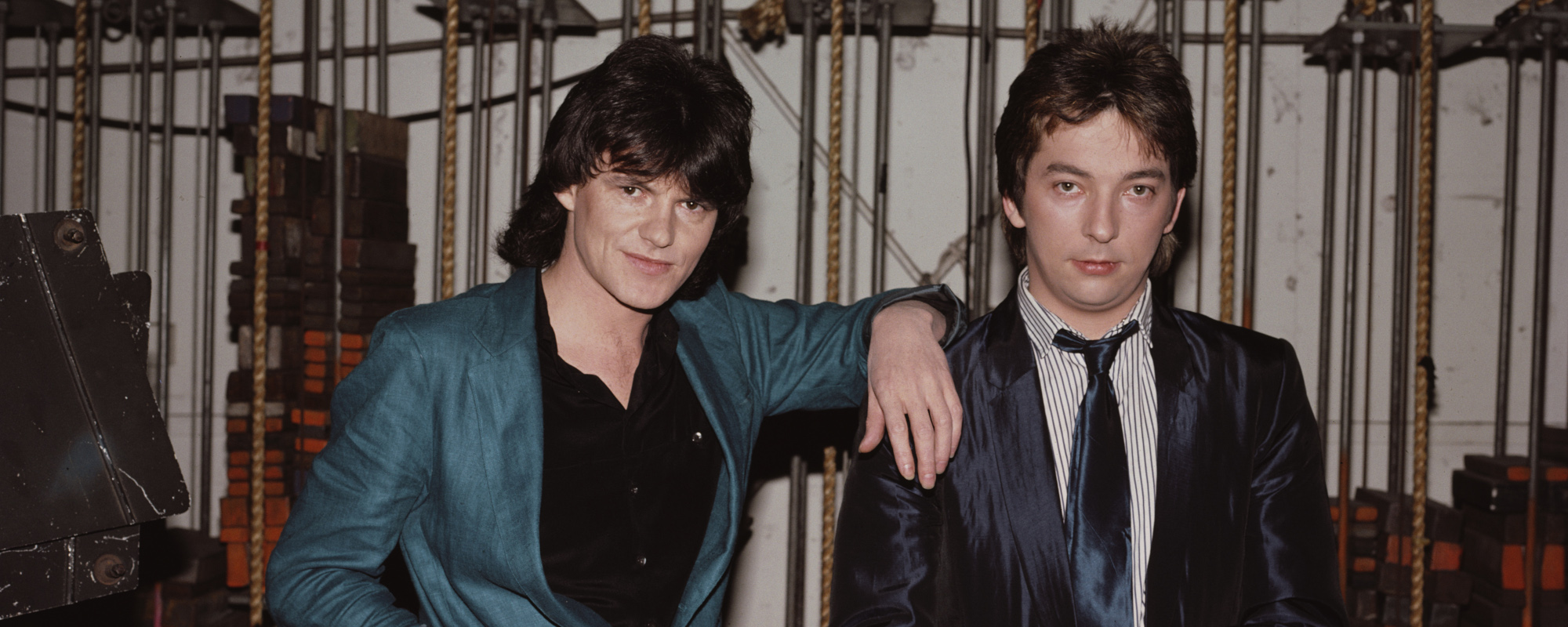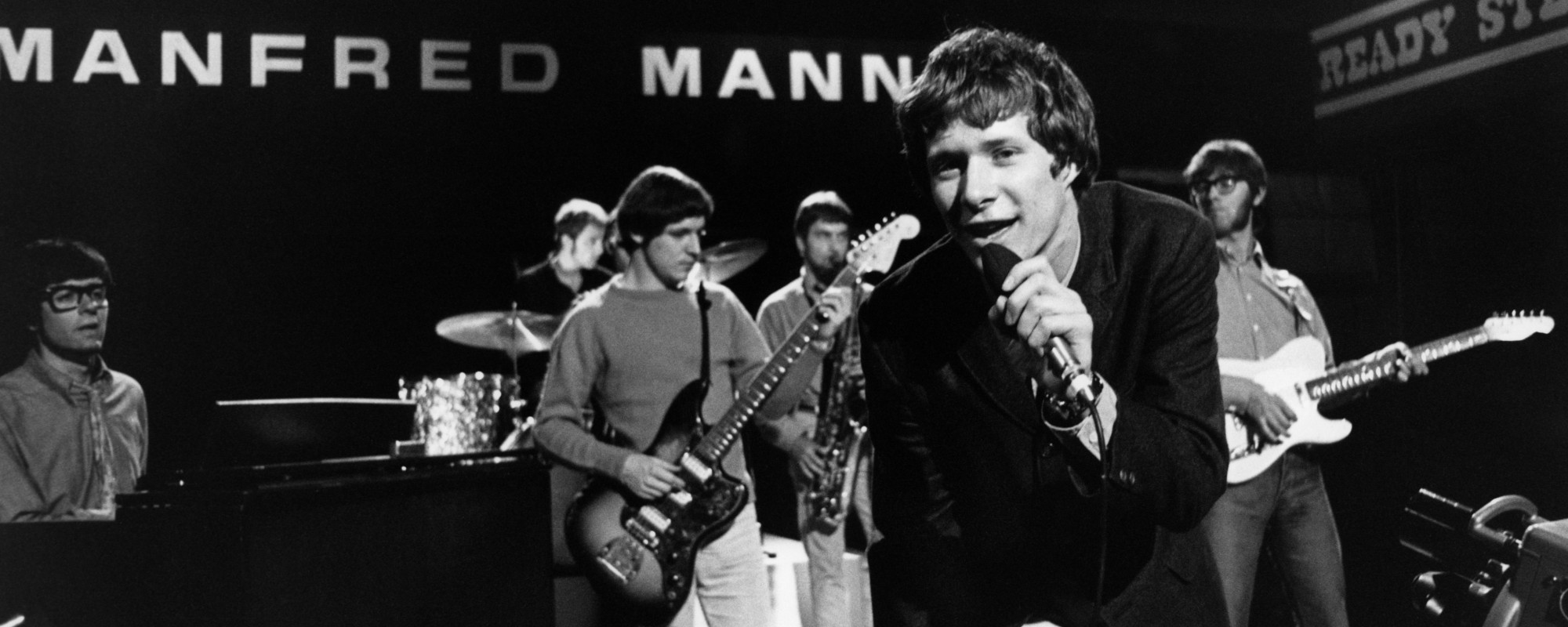On her fifth album, Thinkin’ About You, Trisha Yearwood once again showed why she was one of her generation’s premier singers with hits like the title track and “XXX’s and OOO’s (An American Girl).” The album’s third single, though, “On a Bus to St. Cloud,” didn’t crack the Top 40, which a lot of people thought was a bit of an injustice. This tear-jerking song, written by Gretchen Peters, is sung from the point of view of someone who sees the face of her former lover everywhere, which she knows is impossible since he committed suicide.
Videos by American Songwriter
Gretchen Peters, of course, was on her way to songwriting fame as the writer of Martina McBride’s classic “Independence Day,” and is a gifted artist in her own right who still performs worldwide. She took a couple minutes to explain the history of “On a Bus to St. Cloud” to American Songwriter via e-mail.
“I was actually planning a cross-country road trip and had been looking at a map of the U.S. Maps (remember paper maps?) are full of interesting place names. My eyes just drifted north to Minnesota, and there was the name St. Cloud. I thought it was a lovely sounding name and wanted to put it in a song. I’d been working on an idea which was called something like ‘Postcards from…,’ just the idea of little vignettes from different places. When I found the name St. Cloud it seemed like it belonged in that song.”
“I went into the studio to demo the song with the band I usually used. The bass player was [current Nashville American Federation of Musicians 257 president] Dave Pomeroy, who was playing on Trisha’s record that same week in another studio. When we got done recording the demo, Dave asked if he could take a copy to Trisha. He took it to her two days later, and the next day she recorded it. I have Dave to thank for that, and also for introducing me to my husband, [Nashville pianist] Barry Walsh!”
“All my songs are really picked up and put away and edited and re-edited numerous times. I can count on one hand the songs I’ve finished in a day, or even a week. ‘On a Bus to St. Cloud’ was no exception. I had bits and pieces, but wasn’t really sure what the story was. Often when I’m writing I feel like I’m picking up clues, like the song is leaving me hints as to what it’s about. I had to live with it for quite a while, and listen to the narrator’s voice over and over again to understand what had happened to her. In the end I realized that the other person in the song had committed suicide. When I wrote the line, ‘I wept in the arms of Jesus for the choice you made,’ that’s when I knew what had happened. So the ending of the song isn’t really a resolution, because she doesn’t get to have resolution (or that awful word, closure) with this person. She just keeps seeing him, everywhere. I think that’s how it is when someone takes their own life – it leaves you in a sort of suspended state. You don’t get to say goodbye.”
“But I didn’t want to spell it out – it was enough for me, the writer, to know what happened to the other person. It’s a classic case of Hemingway’s ‘Iceberg Theory’ – I needed to know the whole story between these two people in order to write the song truthfully, honestly. But that doesn’t mean I had to tell all. I think songs are better when you feel the truth of them rather than have it spelled out to you. And I think a bit of mystery is always preferable.”
I started it on the guitar, and then moved to the piano when I felt like I had a little melody and some structure going. I often move to the piano because I’m not as good at piano and sometimes that causes me to find some idiosyncratic chords or inversions that aren’t ‘correct.’ Sometimes I feel like the instrument you don’t play well is the one that has more possibilities.”
“I love Trisha’s version. She sang it to me the night I was inducted into the Nashville Songwriters Hall of Fame, and the whole room was just one giant goosebump. I would also love for more people to hear Jimmy LaFave’s version, too – it’s transcendent and beautiful in a different way.”
“’On a Bus to St. Cloud’ is the only song of mine that I have continually sung live from the beginning of my recording career until the present. It takes a really sturdy song to stand up to 25 years of being sung. You have to be able to constantly find new things, nuances, words that have taken on new meaning. Not a lot of songs can stand up to that. Some songs, good as they are, just can’t take you all the way down the road. I’ve never gotten tired of singing it, because it has grown along with me. The narrator in that song, in my mind, is now older, wiser, closer to the veil. It helps that it was a hit for me in the UK, and it’s taken on a very special place in our set list when we play across the pond. It’s one of those ‘music-is-church’ moments.”
Are you a songwriter? Enter the American Songwriter Lyric Contest.













Leave a Reply
Only members can comment. Become a member. Already a member? Log in.